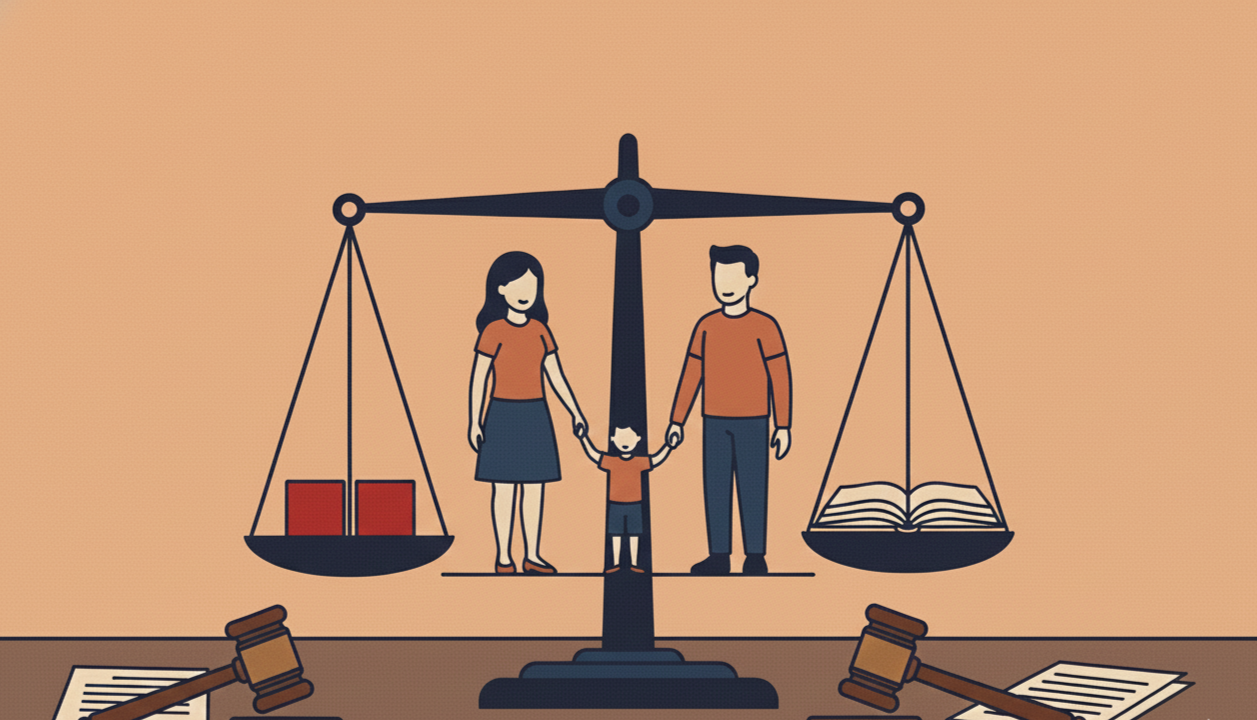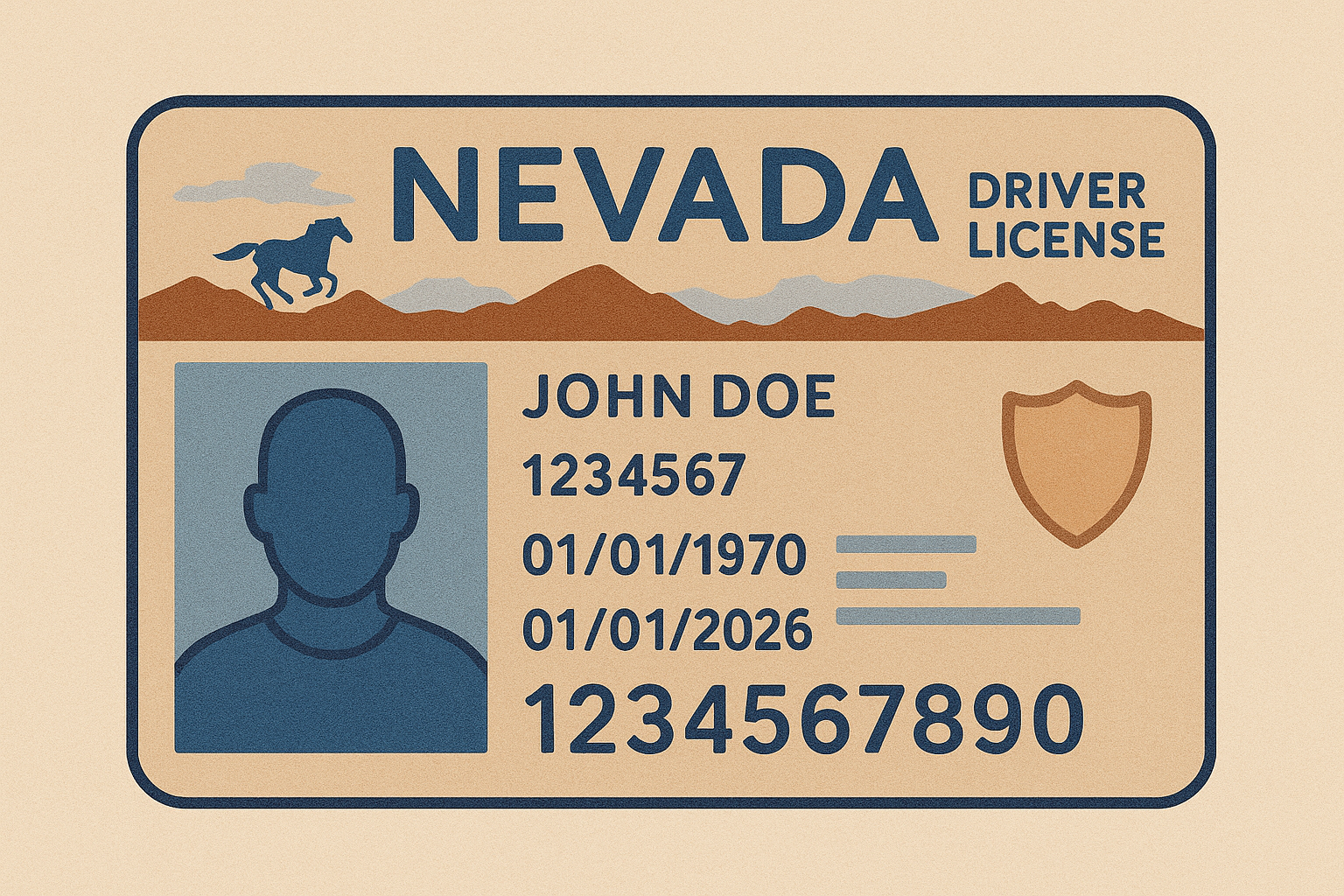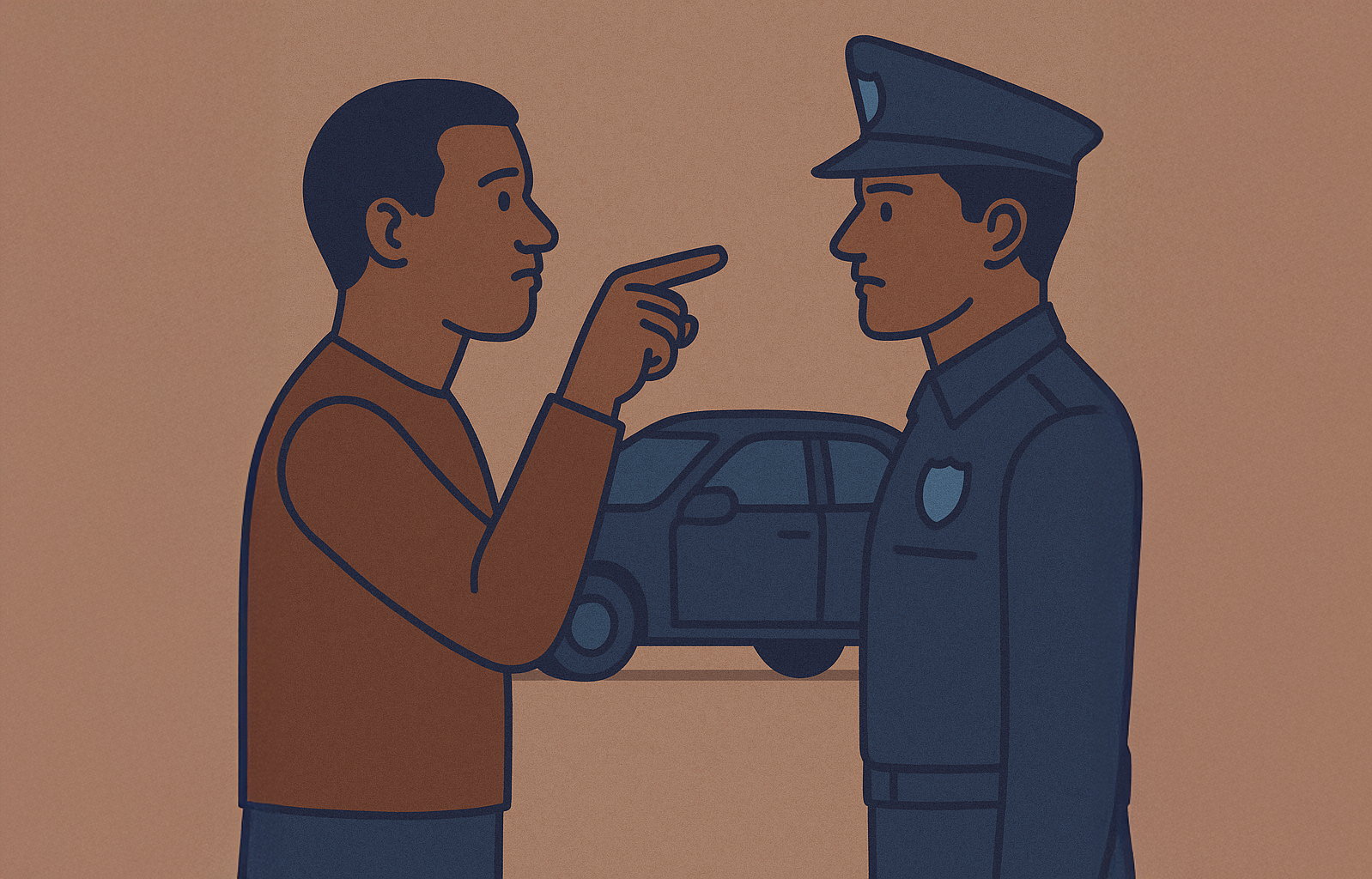BLOG

Blending a family is a significant milestone. For many stepparents in Reno, Minden, and Carson City, the ultimate goal is to legally formalize the bond they have already built with their stepchild. Stepparent adoption is a beautiful way to provide a child with permanent legal security, but the process involves specific legal steps under Nevada law. At the Law Offices of Maximilian A. Stovall, we help families navigate this journey smoothly, ensuring every detail is handled with care. If you are considering adoption, here is a checklist of the requirements and steps for a stepparent adoption in Northern Nevada. 1. Meet the Legal Requirements Before filing a petition, you must ensure you meet Nevada’s eligibility criteria: Marriage/Domestic Partnership: In Nevada, you must generally be legally married to or in a registered domestic partnership with the child’s legal parent. Residency: You must have lived in Nevada (specifically in the county where you are filing, like Washoe or Douglas County) for at least six months prior to filing. Consent of the Spouse: Your spouse (the child’s biological/legal parent) must consent to the adoption. 2. Obtain Necessary Consents Consent is the most critical part of the adoption process. The Biological Parent: To complete a stepparent adoption, the other biological parent’s parental rights must be terminated. Ideally, this parent provides written consent. The Child: If the child is 14 years of age or older, Nevada law requires them to provide their own written consent to be adopted by their stepparent. Note on Contested Adoptions: If the other biological parent refuses to consent, or cannot be located, the process becomes more complex. You may need to file a petition to terminate parental rights based on grounds like abandonment or unfitness. This is a stage where having an experienced litigator like Max Stovall is essential. 3. File the Petition for Adoption Once the groundwork is laid, your attorney will file a formal Petition for Stepparent Adoption in the local District Court. This document details your relationship with the child and your desire to assume full legal responsibility for them. In Northern Nevada, this is typically filed in: Washoe County (Reno/Sparks) Douglas County (Minden/Gardnerville) Carson City 4. The Investigation or "Home Study" In many stepparent adoptions, the court has the authority to waive the formal home study (which is usually required for private or agency adoptions). However, the judge may still require an investigation or a simplified report to ensure the adoption is in the best interest of the child. 5. The Final Hearing The culmination of the process is the adoption hearing. This is a celebratory event! You, your spouse, and the child will appear before a judge. The judge will review the paperwork, ask a few questions, and—if everything is in order—sign the Decree of Adoption. In our local courts, judges often make these hearings special for the family, recognizing the commitment you are making. 6. Update Legal Documents After the decree is signed, the legal work is almost done. You will need to: Apply for a new birth certificate that lists you as a parent. Update Social Security records. Update school and medical records. Why Work with Max Stovall for Your Adoption? While stepparent adoption is often a joyful process, it requires precision. Errors in the petition or issues with obtaining consent can lead to long delays or legal challenges down the road. Max Stovall provides: Clear Guidance: We simplify the paperwork so you can focus on your family. Compassionate Advocacy: We handle the sensitive conversations regarding the termination of parental rights with professionalism and care. Local Experience: We know the procedures in Reno and Minden courts, ensuring your petition moves through the system as efficiently as possible. Are you ready to make it official? Contact Us Today → Let us help you complete your family circle. Contact the Law Offices of Maximilian A. Stovall today to schedule a consultation regarding stepparent adoption in Northern Nevada.

Divorce changes everything, but few aspects cause as much anxiety as finances. For many couples in Reno, Minden, and across Northern Nevada, the biggest financial question mark is alimony. Whether you anticipate needing support to get back on your feet or are worried about the long-term obligation of paying it, understanding Nevada law is crucial. In Nevada, alimony (legally referred to as spousal support is not guaranteed, and perhaps more importantly, it is not calculated using a simple mathematical formula. It is highly discretionary, meaning the judge has significant power in deciding the outcome. Here is a guide to how spousal support works in Nevada and why having an experienced Northern Nevada family law attorney is essential to protecting your financial future. The Big Question: Is There a Nevada Alimony Calculator? The short answer is no. Unlike child support, which generally follows a strict percentage based on income and the number of children, Nevada law does not provide a calculator or a set percentage for determining spousal support. You cannot simply plug two incomes into a spreadsheet and get a definitive answer. Instead, Nevada judges must make what they call a "just and equitable" award based on the specific circumstances of your marriage. Because there is no formula, the skill of your attorney in presenting your financial reality to the court is often the deciding factor in how much is paid, and for how long. Key Factors Northern Nevada Judges Consider Since there is no calculator, Nevada Revised Statute (NRS) 125.150 provides a list of factors that judges must consider when deciding if alimony should be awarded. If you are facing a divorce in courts ranging from Reno to Carson City, the judge will look at a holistic picture of your marriage, including: 1. The Length of the Marriage This is often the most heavily weighted factor. Generally, short-term marriages (under 5-7 years) are less likely to result in long-term support awards compared to marriages lasting 20 years or more. 2. The Financial Condition of Each Spouse The court looks at the disparity in income. Does one spouse earn significantly more? Does the other spouse have the ability to become self-supporting? The goal is usually to bridge the gap, not necessarily equalize income perfectly. 3. The Age and Health of Both Parties A spouse nearing retirement age or suffering from poor health who cannot enter the workforce will have a stronger claim for support than a young, healthy spouse. 4. Career Sacrifices and Contributions Did one spouse put their career on hold to raise children or manage the household while the other advanced their career? The court considers the contribution of a "homemaker" as having significant economic value. 5. The Standard of Living During the Marriage While not a guarantee, the court does consider the lifestyle the couple enjoyed together when determining what is "just and equitable." 6. Property Division How the marital assets (houses, retirement accounts, businesses) are divided can impact alimony. If one spouse receives a larger share of income-producing assets, they may need less support. Types of Spousal Support in Nevada Alimony is rarely a "forever" obligation anymore. Modern Nevada courts tend to favor arrangements that help a lower-earning spouse become self-sufficient. Temporary Support: Awarded during the divorce process to keep the status quo and ensure bills are paid until a final settlement is reached. Rehabilitative Support: This is very common. It is awarded for a specific period to allow a spouse time to obtain job training, education, or experience to re-enter the workforce and become self-supporting. Lump-Sum Alimony: Sometimes, parties agree to a one-time buyout payment instead of ongoing monthly payments to achieve a "clean break." Permanent (Long-Term) Alimony: Generally reserved for long-term marriages where, due to age or health, one spouse will likely never be able to be fully self-supporting.. How a Strategic Reno & Minden Family Law Attorney Helps Because Nevada alimony law is based on subjective factors rather than a rigid formula, the outcome relies heavily on preparation and strategy. At the Law Offices of Maximilian A. Stovall, we understand the local courts in Reno, Minden, and surrounding Northern Nevada communities. We know how local judges tend to weigh these different financial factors. Whether you are seeking support or defending against an unfair claim, we help by: Gathering Evidence: Meticulously documenting income, expenses, career sacrifices, and standard of living. Developing a Strategy: Crafting a compelling argument tailored to the specific factors that favor your position. Negotiating Fairly: Working toward a realistic settlement out of court that secures your financial stability. Litigating Fiercely: If a fair agreement cannot be reached, we are prepared to advocate vigorously for your financial rights before a judge. Don't leave your financial future to chance. Contact Us Today for Clear Financial Guidance → If you are facing divorce and have questions about alimony in Northern Nevada, contact the Law Offices of Maximilian A. Stovall today to schedule a consultation. We will help you understand your rights and develop a smart strategy for moving forward.

Family law matters affect what matters most—your children. When parents in Reno, Minden, Carson City, or the wider Northern Nevada area face separation or divorce, the most critical decision involves establishing custody. In Nevada, the court's priority is singular and unwavering: the best interest of the child. Understanding this standard and the factors a local judge considers is the first and most vital step in protecting your relationship with your child. The Foundational Standard: Best Interest of the Child Under Nevada Revised Statutes (NRS 125C.0035), every custody determination, whether initial or modified, must be based on what the judge determines is in the child's best interest. This is a complex standard, requiring the court to evaluate numerous factors. What Does "Best Interest" Mean in Nevada Law? The court does not use a simple checklist; instead, it conducts a holistic evaluation of the family situation. Key factors the court must consider include: The Child’s Emotional Bonds: The love, affection, and emotional ties between each parent and the child. The Capacity of the Parent: Each parent's ability to cooperate, facilitate a relationship with the other parent, and address the child's developmental needs. Conflict Between Parents: The level of conflict between the parents and the potential for that conflict to harm the child. The court favors parents who can minimize conflict. Parental Health and Safety: The mental and physical health of each parent. This includes any history of abuse, neglect, or substance dependency. Caring for the Child: Which parent has historically acted as the primary caregiver. The Child’s Preference: If the child is of sufficient age and capacity to form an intelligent preference, the court will consider their wishes, though this is only one factor among many. Crucial Takeaway: The court is not looking for a "perfect parent," but the arrangement that best promotes the child's stability, safety, and well-being. Physical vs. Legal Custody: Key Distinctions A custody order determines two distinct types of rights and responsibilities. It’s essential to understand the difference between them, as they are often treated differently by the court. Legal Custody Legal custody is the authority to make major, long-term decisions concerning the child's upbringing. This includes choices about: Education (which school the child attends) Medical care (non-emergency procedures) Religious instruction In Northern Nevada, courts overwhelmingly favor joint legal custody, meaning both parents share the right to make these major decisions, even if one parent has primary physical custody. Physical Custody Physical custody refers to where the child lives on a day-to-day basis and which parent is responsible for their routine care. Joint Physical Custody: The child spends a significant, roughly equal amount of time with both parents. This arrangement is common and often favored if parents live close and can cooperate effectively. Primary Physical Custody: The child spends the majority of their time (more than 60%) with one parent, while the other parent is typically awarded a structured visitation schedule, often referred to as parenting time. Common Custody Challenges in Northern Nevada Because Northern Nevada is a transient region, specific issues often arise in the family law context: Relocation Cases (Moving Out of State) If a parent with joint physical custody or primary physical custody wishes to move a child out of the state of Nevada, the law requires specific steps. Unless the other parent agrees, you must petition the court for permission. The court will apply a detailed analysis of factors to determine if the move is in the child's best interest. Relocation is one of the most complex areas of custody law. Enforcement of Orders If one parent fails to follow the court-ordered parenting plan—by withholding visitation, failing to pay support, or violating other terms—the other parent may need to file a motion for contempt or an enforcement action. The court takes non-compliance seriously and may impose sanctions or modify the order. How the Law Offices of Maximilian A. Stovall Can Help Navigating the courts in Reno, Minden, and Carson City requires not just a knowledge of Nevada law, but deep familiarity with local judges and procedures. At the Law Offices of Maximilian A. Stovall, we provide: Smart Strategy: We help you understand how the "best interest" factors apply specifically to your unique family situation. Local Advantage: Max Stovall brings deep familiarity with the local judicial system, ensuring your case is presented efficiently. Fierce Advocacy: Whether we are negotiating a fair parenting plan outside of court or advocating for your rights and your child's well-being in a contested hearing, we offer steady guidance every step of the way. If you are facing a child custody matter in Northern Nevada, it is critical to seek experienced legal counsel immediately. Contact Us Today Ready to discuss your case? Contact the Law Offices of Maximilian A. Stovall for compassionate guidance and strong representation.

Being placed on probation in Nevada can feel like a second chance. Instead of serving time in jail or prison, you get to remain in the community — but that opportunity comes with strict conditions. If you violate those terms, you could be facing serious consequences, including the possibility of serving the original sentence you were trying to avoid. Whether your probation is through Douglas County, Washoe County, or anywhere else in Northern Nevada, knowing what counts as a violation — and what happens next — is critical. Common Ways Probation Is Violated Probation conditions vary depending on your case, but violations generally fall into two categories: 1. Technical violations – Breaking the specific rules of your probation, such as: Missing meetings with your probation officer Failing to complete court-ordered classes or community service Traveling out of state without permission Not paying required fines, fees, or restitution 2. Substantive violations – Committing a new offense while on probation, even if it’s unrelated to your original charge. This can include anything from a DUI arrest to a shoplifting charge. Sometimes, violations happen due to misunderstandings — for example, missing an appointment because you didn’t get a schedule change notice. But even unintentional violations can still lead to serious consequences. What Happens After a Probation Violation in Nevada If your probation officer believes you’ve violated your terms, they can file a violation report with the court. The judge may then: Issue a summons for you to appear in court, or Issue a warrant for your arrest (especially if the violation is serious or involves a new criminal charge ) You’ll then attend a probation revocation hearing, where the court decides if you did, in fact, violate your probation and what should happen next. Possible Penalties for a Probation Violation Penalties vary depending on the nature and severity of the violation, your criminal history, and your overall compliance with probation before the incident. The court can: Reinstate your probation with the same terms Modify your probation by adding stricter conditions Extend the length of your probation Revoke your probation entirely and require you to serve the original jail or prison sentence If your violation involves a new criminal charge, you could be dealing with two separate cases — one for the violation and one for the new offense. Defenses to a Probation Violation Having an attorney at your probation revocation hearing is essential. Your lawyer may be able to show: The violation didn’t happen (mistaken identity, inaccurate records) The violation was unintentional and due to circumstances beyond your control You have made significant progress on probation and deserve another chance Alternative measures (like increased supervision or additional classes) would be more appropriate than jail time Unlike criminal trials, probation violation hearings have a lower burden of proof — meaning the prosecution doesn’t need to prove the violation beyond a reasonable doubt. This makes having an advocate on your side even more important. Local Help for Probation Violations in Douglas and Washoe Counties At Max Stovall Law, we understand that life on probation can be challenging, and sometimes mistakes happen. We’ve represented clients across Douglas County and Washoe County in probation violation hearings, helping them avoid unnecessary jail time and get back on track. If you’ve been accused of violating your probation, don’t face the judge alone. Contact us today for a free consultation and let us fight to keep your freedom.

Petty theft is one of the most common charges in Nevada, especially for first-time offenders . But while it may sound minor, a conviction can leave you with a permanent criminal record and lasting consequences for your employment and reputation. Whether your case is in Douglas County, Washoe County, or anywhere else in Northern Nevada, it’s important to understand what’s at stake. What Counts as Petty Theft in Nevada? Petty theft — also called petit larceny — is defined as intentionally stealing property valued at less than $1,200. Common examples include: Shoplifting small items from a store Taking property from a friend, roommate, or co-worker Switching price tags to pay less Walking out of a business without paying for services Penalties for Petty Theft Petty theft is a misdemeanor in Nevada. If convicted, you could face: Up to 6 months in jail Fines up to $1,000 Restitution to the victim Possible community service While jail time is rare for first-time offenders, a conviction still creates a permanent criminal record that can affect job applications, housing, and professional licensing. Petty Theft vs. Grand Larceny If the value of the property is $1,200 or more, the charge becomes grand larceny, which is a felony with much harsher penalties. Prosecutors will often rely on store records or victim statements to determine value, so challenging that valuation can sometimes be a defense strategy. Defenses to Petty Theft Charges Potential defenses include: Lack of intent to steal Mistaken identity Wrongful accusation Disputing the value of the property Violation of your rights during the search or arrest In some cases, your attorney can negotiate for dismissal if you agree to pay restitution, attend theft prevention classes, or complete community service. Keeping a Conviction Off Your Record First-time offenders in Douglas and Washoe Counties may be eligible for diversion programs that result in charges being dropped after you meet certain conditions. This option is worth pursuing to avoid having theft on your record. We Defend Petty Theft Cases in Northern Nevada At Max Stovall Law, we’ve helped many clients — including first-time offenders — avoid the long-term consequences of a petty theft conviction. We know how to negotiate for reduced charges, push for dismissal, and protect your reputation. If you’ve been charged with petty theft, don’t assume it’s “just a ticket.” Contact us today for a free consultation to learn your options.

If your driver’s license has been suspended in Nevada, getting behind the wheel might seem tempting — especially if you need to get to work, school, or take care of family. But driving on a suspended license is more than just a traffic violation. It’s a criminal offense with penalties that can make your situation much worse. Whether your case is in Douglas County, Washoe County, or anywhere else in Northern Nevada, here’s what you need to know about the risks, penalties, and possible defenses. Why Licenses Get Suspended in Nevada A suspension can happen for many reasons, including: DUI convictions or administrative suspensions Too many demerit points on your driving record Failing to pay traffic tickets or court fines Driving without insurance Certain criminal convictions, like reckless driving or vehicular manslaughter In many cases, you’ll receive notice from the Nevada DMV about your suspension, including the length of time and any steps you must take to reinstate your license. The Penalties for Driving While Suspended Driving with a suspended license in Nevada is usually a misdemeanor, but the penalties can be serious. For most cases, you could face: Fines: Up to $1,000 Jail time: Up to 6 months (though many first-time offenders receive probation instead) Extended suspension: The DMV will typically add more time to your suspension period If your suspension is related to a DUI, the penalties can be even harsher — including possible mandatory jail time and a longer extension on your suspension. How You Can Be Caught Police can learn about your suspension in several ways: Running your license during a traffic stop Automated license plate readers (ALPR) in patrol cars After an accident investigation Even if you’re driving safely, being pulled over for a minor infraction can lead to a suspended license charge if your driving privileges aren’t valid. Possible Defenses Depending on the circumstances, an attorney may be able to challenge the charge by showing: You were not aware your license was suspended (though this defense has limits) The DMV or court made an administrative error in suspending your license You were driving in a true emergency situation In some cases, your lawyer may be able to negotiate for a reduced charge — such as driving without a valid license — which carries lighter penalties. How to Reinstate Your License The best way to avoid a suspended license charge is to get your license reinstated before driving again. This usually involves: Paying any outstanding fines or fees Providing proof of insurance (SR-22 in some cases) Completing any required classes or court-ordered programs Waiting until the full suspension period has ended Local Defense for Suspended License Charges At Max Stovall Law, we represent clients facing suspended license charges in Douglas County, Washoe County, and across Northern Nevada. We know the local courts, the DMV process, and how to fight for reduced penalties — or get charges dismissed when possible. If you’ve been cited for driving with a suspended license, don’t wait for the problem to get worse. Contact us today for a free consultation and let’s start working toward getting you back on the road legally.

Many drivers think of reckless driving as just another traffic ticket. In reality, Nevada treats reckless driving as a criminal offense — and the penalties can be just as serious as some DUI charges. Whether your case is in Douglas County, Washoe County, or anywhere else in Northern Nevada, a reckless driving conviction can affect your license, your insurance, and even your criminal record. What Is Reckless Driving in Nevada? Under Nevada law (NRS 484B.653), reckless driving means driving “in willful or wanton disregard of the safety of persons or property.” This is more than just speeding — it’s driving in a way that deliberately ignores safety. Examples can include: Excessive speeding far above the posted limit Aggressive weaving through traffic Street racing Running multiple red lights or stop signs Passing illegally in dangerous conditions Even a single act of extremely dangerous driving can qualify. Penalties for Reckless Driving The penalties for reckless driving in Nevada depend on whether it’s your first offense and whether anyone was injured. First offense (no injury): Misdemeanor criminal charge $250–$1,000 fine 8 demerit points on your driving record Possible jail time of up to 6 months (rare for first offenses, but possible) If someone is injured or killed: Felony charges , with the possibility of 1–6 years in prison Significantly higher fines Permanent criminal record Reckless Driving vs. DUI In some cases, DUI charges can be reduced to reckless driving as part of a plea deal. While reckless driving is still a criminal offense, it usually carries fewer long-term consequences than a DUI. However, this doesn’t mean a reckless driving conviction is “no big deal” — it still goes on your record and can lead to license suspension. How Reckless Driving Impacts Your Record Reckless driving is not just a traffic citation — it’s a misdemeanor or felony criminal offense, depending on the circumstances. A conviction will appear on background checks, can cause your insurance rates to spike, and may affect certain job opportunities that require driving. Demerit points also stay on your driving record for 12 months, and too many points can lead to a license suspension. Defending Against a Reckless Driving Charge An experienced Nevada defense attorney can challenge a reckless driving charge by: Questioning the accuracy of speed readings or other evidence Showing that your driving did not meet the legal definition of “reckless” Negotiating for a reduced charge, such as careless driving, which carries fewer penalties Every case is different, but having legal representation can make a big difference in how your case is resolved. Protect Your Record and Your License At Max Stovall Law, we represent clients facing reckless driving charges throughout Douglas County and Washoe County. We know how quickly a moment on the road can turn into a serious legal problem — and how to fight for the best possible outcome. If you’ve been charged with reckless driving, don’t take it lightly. Contact us today for a free consultation and start protecting your driving record and your future.

Going through a divorce can be one of the most stressful experiences of your life. Questions about money, children, and the future can feel overwhelming, and the legal system adds another layer of uncertainty. If you’re considering divorce in Douglas County, Washoe County, or anywhere else in Northern Nevada, here’s a complete guide to how divorce works in Nevada — from filing requirements to final judgment. Residency Requirements To file for divorce in Nevada, at least one spouse must live in the state for six consecutive weeks before filing. Residency must be proven, often with a signed affidavit from a witness who can confirm your presence in the state. This relatively short residency requirement makes Nevada one of the easier states in which to file for divorce. Where to File Divorces must be filed in the district court for the county where either spouse lives: Douglas County: Ninth Judicial District Court in Minden Washoe County: Second Judicial District Court in Reno Filing in the correct county ensures your case proceeds smoothly. Grounds for Divorce in Nevada Nevada is a no-fault divorce state, meaning you don’t have to prove wrongdoing like adultery or abandonment. Instead, most divorces are filed under: Incompatibility (irreconcilable differences) Living separately for at least one year without cohabitation Contested vs. Uncontested Divorce Uncontested divorce: Both spouses agree on all issues, including custody, property division, and support. This is the fastest and least expensive option, sometimes finalized within weeks. Contested divorce: Spouses disagree on one or more major issues. This process can take months or longer, often requiring hearings, mediation, or a trial. Key Issues in Nevada Divorces 1. Division of Property Nevada is a community property state. This means all assets and debts acquired during the marriage are generally divided 50/50. Separate property — assets owned before marriage or received as gifts/inheritances — typically remains with the original owner. Disputes often arise over business interests, retirement accounts, and real estate. 2. Spousal Support (Alimony) Alimony isn’t automatic in Nevada. Courts consider factors such as: Length of the marriage Financial needs and earning capacity of each spouse Contributions to the household or one spouse’s career Standard of living during the marriage Support may be temporary, rehabilitative (helping one spouse retrain for work), or long-term. 3. Child Custody and Support Custody decisions are made based on the best interest of the child (NRS 125C.0035). Courts prefer joint custody when possible, but factors such as stability, parental fitness, and history of domestic violence or substance abuse weigh heavily. Child support is calculated using Nevada’s statutory guidelines, which consider the parents’ income and the number of children. Divorce Timeline in Nevada Uncontested divorce: As little as 6–8 weeks Contested divorce: 6 months to over a year, depending on complexity and court schedules Costs of Divorce The cost of divorce varies. Court filing fees in Washoe and Douglas Counties are typically several hundred dollars. Attorney fees depend on whether the divorce is uncontested or contested — contested divorces are significantly more expensive due to additional hearings and trial preparation. Mediation and Alternatives Nevada courts encourage mediation for custody and parenting disputes. Mediation can help couples avoid long, costly trials while maintaining more control over the outcome. Modifying Divorce Decrees Life changes after divorce. Custody, support, and even alimony orders can sometimes be modified if you show a significant change in circumstances, such as job loss, relocation, or new financial needs. Local Representation in Douglas and Washoe Counties Divorce is never easy, but you don’t have to go through it alone. At Max Stovall Law , we guide clients in Douglas County, Washoe County, and throughout Northern Nevada through every step of the divorce process. From straightforward uncontested cases to complex, contested divorces, we fight to protect your rights, your children, and your financial future.

Few issues in family law cause more stress than child custody. Parents want to know: What will happen to my kids? How will the court decide? In Nevada, custody decisions are based on what the court believes is in the best interest of the child. If you’re going through a divorce or separation in Douglas County, Washoe County, or elsewhere in Northern Nevada, here’s what you need to know about how custody is decided. Types of Custody in Nevada Nevada recognizes two main types of custody: • Legal custody: The right to make important decisions about your child’s education, healthcare, and upbringing. • Physical custody: Where the child lives and who provides day-to-day care. Custody can be joint (shared between parents) or sole (granted primarily to one parent). Courts prefer joint custody when possible, believing children benefit from ongoing relationships with both parents. The “Best Interest of the Child” Standard Under Nevada law (NRS 125C.0035), judges must prioritize the child’s best interests above all else. Factors the court considers include: • The child’s relationship with each parent • Each parent’s ability to provide a stable home • The child’s physical, developmental, and emotional needs • The child’s preference, if mature enough to express it • Any history of domestic violence, neglect, or substance abuse • The willingness of each parent to foster a relationship between the child and the other parent No single factor is decisive — judges weigh all circumstances carefully. Modifying Custody Orders Custody isn’t set in stone. If circumstances change — such as one parent moving, changes in a child’s needs, or concerns about safety — custody orders can be modified. To do this, the requesting parent must show a substantial change in circumstances and prove the modification would benefit the child. Local Custody Cases in Douglas and Washoe Counties Custody cases in Douglas County are typically heard in the East Fork Justice Court or District Court in Minden, while Washoe County cases are handled at the Second Judicial District Court in Reno. Each court has its own procedures, but both apply the same Nevada custody laws. Having an attorney who knows the local judges and practices can make a real difference. Protecting Your Parental Rights At Max Stovall Law, we know how important your children are. We’ve helped parents across Northern Nevada navigate custody disputes with compassion and strength, fighting for arrangements that serve both the child’s best interests and the parent’s rights. If you’re facing a custody dispute, don’t face it alone. Contact us today for a free consultation.

A first-time DUI in Nevada can be a frightening experience, especially if you’ve never been in legal trouble before. You may be worried about losing your license, going to jail, or how this charge could affect your job and reputation. Whether your arrest happened in Douglas County, Washoe County, or anywhere in Northern Nevada, it’s important to understand the law — and what to expect in the weeks and months ahead. Nevada’s DUI Laws In Nevada, you can be charged with driving under the influence if: Your blood alcohol concentration (BAC) is 0.08% or higher (0.04% for commercial drivers, 0.02% for drivers under 21), or You are impaired by alcohol, drugs, or a combination, regardless of BAC This applies whether you were driving in downtown Reno, on a rural Douglas County highway, or anywhere else in the state. Penalties for a First DUI Offense A first-time DUI in Nevada is typically a misdemeanor, but the penalties can still be serious. If convicted, you may face: Jail time: 2 days to 6 months (often converted to community service for first-time offenders) Fines: $400 to $1,000 plus court costs License suspension: 185 days (with possible eligibility for a restricted license after 90 days) DUI education: Mandatory alcohol/drug education program Victim Impact Panel: Attendance at a panel hosted by groups like Mothers Against Drunk Driving (MADD) If your BAC was 0.18% or higher, you may also be required to install an ignition interlock device on your vehicle for 185 days. Criminal Case vs. DMV Hearing One important thing to understand is that a DUI triggers two separate processes: The criminal case in court The DMV administrative hearing about your license These are completely separate. Even if your criminal case is dismissed, the DMV can still suspend your license unless you successfully contest the administrative action. You only have 7 days from your arrest to request a DMV hearing — miss that deadline and your suspension will begin automatically. Possible Defenses for a First DUI Every case is different, but common defenses in first-offense DUI cases may include: Challenging the accuracy of the breath or blood test Questioning whether the traffic stop was lawful Showing that field sobriety tests were improperly administered Demonstrating that medical conditions or other factors caused “false positives” for impairment The sooner you involve an attorney, the more opportunities you have to protect your record and your license. Why You Should Take a First DUI Seriously Many people make the mistake of thinking a first DUI is “no big deal” — but a conviction stays on your record for 7 years. Any future DUI arrest during that time will be treated as a second offense, with much harsher penalties. A first offense can also raise your insurance rates and limit employment opportunities. Local Representation for DUI Charges At Max Stovall Law, we represent clients facing DUI charges in Douglas County, Washoe County, and throughout Northern Nevada. We know the local court systems, the prosecutors, and the strategies that work in these cases. Our goal is to protect your license, your record, and your future. If you’ve been arrested for a first DUI, don’t wait. The clock on your DMV hearing is already ticking. Contact us today for a free consultation and let’s start building your defense .

In Nevada, there’s a big difference between simple drug possession and possession with intent to sell — and the penalties reflect it. If prosecutors believe you planned to sell, distribute, or even share drugs, the charges you face can escalate quickly from probation-eligible to prison-mandatory. Whether your case is in Douglas County, Washoe County, or anywhere else in Northern Nevada, understanding how these cases are handled — and how prosecutors try to prove “intent” — is key to defending yourself. How Nevada Defines “Possession With Intent to Sell” Under Nevada law, you can be charged with possession with intent to sell if prosecutors believe you: Had a controlled substance in your possession, and Planned to sell, deliver, or distribute it Here’s the important part: You don’t have to be caught in the act of selling to face this charge. Intent can be based entirely on circumstantial evidence. What Counts as Evidence of Intent? Police and prosecutors may try to prove intent to sell by pointing to: The amount of drugs in your possession — more than what would typically be for personal use Packaging materials, like multiple small baggies or containers Large amounts of cash, especially in small bills Scales or other measuring devices Text messages, call logs, or social media messages suggesting drug transactions The presence of weapons alongside the drugs In other words, the same quantity of drugs could result in vastly different charges depending on how it’s packaged, stored, and what else is found with it. Penalties for Possession With Intent to Sell in Nevada Possession with intent to sell is a felony in Nevada, and penalties vary depending on the drug schedule and your prior record. For Schedule I or II drugs (like heroin, cocaine, or methamphetamine): First offense: Category D felony, 1–4 years in prison, fines up to $5,000 Second offense: Category C felony, 1–5 years in prison, fines up to $10,000 Third offense: Category B felony, 3–15 years in prison, fines up to $20,000 Lower schedules and marijuana have different penalty ranges, but the consequences are still severe — especially for repeat offenders. Possible Defenses An experienced defense attorney can challenge a possession with intent to sell charge in several ways: Arguing lack of intent — showing the drugs were for personal use, not for sale Challenging the search and seizure — if police violated your rights, the evidence could be suppressed Questioning the chain of custody — ensuring the drugs and evidence were handled properly from seizure to trial Pointing to insufficient evidence — if the state’s case is built on weak assumptions In some cases, your lawyer may negotiate a reduction from “intent to sell” down to simple possession, which often carries lighter penalties and may qualify you for probation or a diversion program. Local Courts, Local Strategies In Douglas County and Washoe County, possession with intent to sell cases are taken seriously by prosecutors and judges. But the details of your case — and the way it’s presented — matter. Local knowledge of how specific judges handle these charges, what diversion options exist, and how local prosecutors negotiate can make a significant difference in the outcome. Facing Drug Sale Allegations in Northern Nevada? We Can Help. At Max Stovall Law, we defend clients accused of drug crimes throughout Northern Nevada — from small-town arrests in Minden to large-scale investigations in Reno. We understand the high stakes and know how to challenge the evidence, protect your rights, and fight for your future. If you’ve been charged with possession with intent to sell, don’t wait until it’s too late to start building your defense. Contact us today for a free consultation — and let’s start protecting your future now.

Drug laws in Nevada have changed over the years, especially when it comes to marijuana. But make no mistake — being charged with drug possession is still a serious matter that can have lasting consequences. Whether your case is in Douglas County, Washoe County, or anywhere else in Northern Nevada, a possession charge can impact your record, your freedom, and your future opportunities. Understanding how Nevada handles drug possession — and what you can do if you’ve been charged — is the first step toward protecting yourself. What Counts as “Possession” in Nevada? Under Nevada law, possession means having control over a controlled substance, whether it’s on your person, in your car, in your home, or even somewhere else you have access to. There are three main types of possession: Actual possession – Having the drugs physically on you, like in your pocket or backpack. Constructive possession – The drugs aren’t on you, but they’re in a place you control, like your car, apartment, or storage unit. Joint possession – Two or more people share control over the same drugs. It’s also important to note that you don’t have to own the drugs to be charged — simply having access to them can be enough for prosecutors to pursue a case. Controlled Substances in Nevada Nevada classifies drugs into five schedules, based on factors like medical use and potential for abuse. Schedule I drugs (heroin, LSD, MDMA) are considered the most serious, with no accepted medical use and high potential for abuse. Schedule II–V drugs include substances like methamphetamine, cocaine, prescription opioids, anabolic steroids, and certain anxiety medications — many of which are legal with a valid prescription but illegal to possess otherwise. Marijuana is treated differently from other controlled substances, but possession over the legal limit can still lead to criminal charges. Penalties for Drug Possession in Nevada The severity of a drug possession charge depends on: • The type and amount of the substance • Your criminal history • Whether prosecutors believe you intended to use the drugs personally or distribute them First-time possession of a Schedule I or II controlled substance (other than marijuana) is typically a Category E felony, punishable by 1–4 years in prison and fines up to $5,000. However, first-time offenders are often eligible for probation or drug court, which focuses on rehabilitation instead of jail. Possession with intent to sell , or trafficking larger amounts, results in far more severe charges and mandatory prison time. Marijuana Possession in Nevada For adults 21 and over, it’s legal to possess: • Up to 1 ounce of marijuana flower, or • Up to ⅛ ounce of concentrated cannabis (like edibles, oils, or waxes) Possessing more than the legal limit — or possessing any amount if you’re under 21 — can still lead to criminal charges. Selling marijuana without a license is also a felony. Defenses to Drug Possession Charges A strong defense can mean the difference between a conviction and a clean record. Depending on the facts, your attorney may challenge: • Whether the drugs actually belonged to you • How the drugs were found (illegal searches can make evidence inadmissible) • Whether law enforcement respected your constitutional rights during the arrest • The lab results confirming the substance In some cases, it’s possible to negotiate reduced charges, enter a diversion program, or have the case dismissed entirely. Why Legal Representation Matters Even if you think the charge is “minor” — especially for a first offense — a conviction can follow you for years. It can affect employment, housing, professional licenses, and your ability to obtain certain loans or benefits. An experienced Nevada criminal defense attorney knows the local courts, understands the programs available for first-time offenders, and can fight to protect your record and your future. Charged with Drug Possession in Douglas or Washoe County? We Can Help. At Max Stovall Law, we represent clients facing drug charges throughout Northern Nevada — from simple possession to serious trafficking cases. We know the stakes, we know the law, and we know how to fight for the best possible outcome. If you’ve been charged with drug possession, don’t wait until your court date to get help. Contact us today for a free consultation — and take the first step toward protecting your freedom and your future.

If you’ve ever watched a crime drama on TV, you’ve probably heard the famous line: “You have the right to remain silent…” But in the real world — especially if you’ve been arrested or questioned by law enforcement — understanding what your Miranda rights actually mean can make or break your case. Whether you’re facing charges in Douglas County, Washoe County, or anywhere else in Nevada, it’s crucial to know your rights — and how to use them wisely. What Are Miranda Rights? Miranda rights come from the 1966 U.S. Supreme Court case Miranda v. Arizona. The ruling requires police to inform you of specific constitutional rights before conducting a custodial interrogation — that is, questioning you while you’re in police custody. These rights include: The right to remain silent The right to an attorney The warning that anything you say can be used against you in court The right to have an attorney appointed if you can’t afford one These protections stem from the Fifth Amendment (protection against self-incrimination) and the Sixth Amendment (right to legal counsel). When Do Miranda Rights Apply in Nevada? Here’s a common misconception: police are not required to read you your Miranda rights at the time of arrest. In Nevada, your rights only need to be read if: You are in custody, and Law enforcement intends to question you So, if you’re arrested but not questioned, Miranda may not apply. Likewise, if you’re being questioned but are not technically in custody (for example, during a voluntary interview), your statements may still be admissible even if no rights were read. This gray area is where people often get tripped up — and why having a lawyer involved early matters. What Happens If Police Don’t Read You Your Rights? If you’re interrogated while in custody and your Miranda rights weren’t read, any statements you made may be considered inadmissible in court. That means the prosecutor can’t use them against you — and in some cases, it may lead to charges being reduced or dismissed. However, this does not mean your entire case is thrown out. The charges can still stand if there’s other evidence against you — like physical evidence, witness testimony, or surveillance footage. That’s why it’s so important to invoke your rights — and use them — from the moment you’re detained. How to Use Your Rights Effectively Knowing your rights is one thing. Using them wisely is another. If you’re stopped, questioned, or arrested in Nevada, here’s what to do: Say clearly and calmly: “I’m invoking my right to remain silent and I want to speak to an attorney.” Stop talking immediately. Even casual or offhand remarks can be used against you. Do not try to explain or justify yourself. That’s what your lawyer is for. Be respectful, but firm. You’re not required to answer questions, even if officers pressure you. This applies whether you’re in downtown Reno, at a traffic stop in Minden, or sitting in an interview room anywhere in the state. Miranda Rights Are a Tool — But Not a Loophole It’s important to understand that Miranda rights are not a “get out of jail free” card. They are there to protect you from coercion and help level the playing field between you and law enforcement. But if you waive those rights — either by speaking freely or answering questions — you may unknowingly harm your own case. That’s why having an experienced criminal defense attorney is essential. Your lawyer can challenge improper questioning, suppress statements made without proper Miranda warnings, and protect your constitutional rights at every stage of the process. Charged or Questioned in Northern Nevada? Don’t Go It Alone. At Max Stovall Law, we help clients across Douglas County, Washoe County, and greater Northern Nevada understand and assert their legal rights. Whether you’ve already been charged or you’ve just been contacted by police, we can step in, defend your rights, and help you make informed decisions from day one. Contact us today for a free consultation . We’ll walk you through what’s happened, what your options are, and how we can help protect your future — starting now.

If you or someone you love is facing criminal charges in Nevada, one of the first questions that comes up is whether the charge is a misdemeanor or a felony — and what that actually means. The difference isn’t just about legal definitions. It impacts everything: the potential penalties, how the case is handled in court, what kind of criminal record you’ll have, and how your future could be affected. Whether your case is in Douglas County, Washoe County, or anywhere else in Northern Nevada, understanding this distinction is key to knowing your rights and making informed decisions. Let’s break it down. What Is a Misdemeanor in Nevada? A misdemeanor is considered a less serious offense, but that doesn’t mean the consequences are minor. Common misdemeanor charges in Nevada include: Petty theft or shoplifting (under $1,200) Trespassing First-time DUI (without injury) Simple battery or assault Vandalism Possession of small amounts of controlled substances In most cases, a misdemeanor is punishable by up to 6 months in jail, fines up to $1,000, and other penalties like community service, mandatory classes, or probation. These cases are typically handled in municipal or justice courts, such as East Fork Justice Court in Douglas County or Reno Justice Court in Washoe County. Even though jail time is possible, many first-time offenders may be eligible for alternative sentencing, diversion programs, or suspended sentences — especially if they have a good attorney advocating for them. What Is a Felony in Nevada? A felony is a more serious offense under Nevada law and carries significantly harsher penalties. Felony charges include: Drug trafficking Domestic violence with prior convictions Assault with a deadly weapon Grand larceny (theft over $1,200) Robbery Sexual offenses Homicide Felonies are categorized into five classes (A–E), with Category A felonies (like murder) being the most severe, potentially resulting in life in prison or even the death penalty. Lower-level felonies (Category D or E) may carry a sentence of 1–4 years in prison but still result in a permanent felony record. Felony cases are handled in district courts — for instance, Douglas County District Court in Minden or Second Judicial District Court in Reno. A felony conviction can impact your right to vote, own firearms, get certain jobs or licenses, and even find housing. That’s why felony charges require a strategic and aggressive legal defense — even if it’s your first offense. Why the Difference Matters The classification of your charge as a misdemeanor or felony affects more than just the penalties — it affects how the case is handled, how your record is treated, and how much leverage you have during plea negotiations. For example: A felony may not be eligible for record sealing for many years — if at all A misdemeanor may be sealed much sooner, sometimes just a year after the case closes Judges and prosecutors approach felonies with more scrutiny Felony convictions come with collateral consequences like losing civil rights It’s also not uncommon for some offenses to be charged as either a misdemeanor or a felony, depending on the facts of the case. This is known as a “wobbler” offense — and it’s one of many reasons why having an experienced defense attorney can make a big difference. The right lawyer may be able to get charges reduced from a felony to a misdemeanor or argue for alternative sentencing options that preserve your future. Don’t Make Assumptions — Get Legal Help Early Whether you’re facing a misdemeanor or a felony charge in Douglas County, Washoe County, or anywhere in Nevada, it’s a mistake to assume that one is “not a big deal.” Any criminal charge can follow you for years if it’s not handled correctly. At Max Stovall Law, we help clients navigate both misdemeanor and felony cases with clarity, strategy, and strength. We’ve worked in the local courts, we know the prosecutors, and we understand how to advocate for the best possible outcome — whether that means getting charges reduced, negotiating alternatives to jail, or fighting the case in court. If you’ve been charged — or are under investigation — don’t wait. Contact Max Stovall Law today for a free consultation. We’ll help you understand what you’re facing and what steps to take next to protect your record and your future.

If you’ve been charged with a crime for the first time — whether it’s a misdemeanor or felony — you might be wondering if it’s worth hiring a lawyer. After all, maybe you’re thinking, “It’s just my first offense… won’t the court go easy on me?” The truth is, even first-time charges in Nevada can carry lasting consequences. Whether you were arrested in Douglas County, Washoe County, or anywhere else in Northern Nevada, it’s important to understand how the legal system works — and how quickly things can escalate without proper representation. Here’s what you need to know about why hiring a criminal defense attorney for a first offense is not just smart — it’s essential. First Offenses Are Still Criminal Charges It’s a common misconception that first-time offenders get a “free pass.” While judges may sometimes show leniency to those with clean records, that’s not guaranteed — and it depends heavily on the type of charge, the circumstances, and how the case is presented. Even for something like shoplifting, minor drug possession, or a first-time DUI, you’re facing real consequences: fines, probation, loss of your driver’s license, mandatory classes, or even jail time. A conviction goes on your criminal record, which can affect job applications, housing opportunities, professional licenses, and immigration status. Having a lawyer helps ensure that one mistake doesn’t define your future. What a Lawyer Can Do in a First-Time Case An experienced criminal defense attorney does far more than just show up in court. From the beginning, your lawyer will: Review the details of your arrest to check for violations of your rights (like illegal searches or lack of probable cause) Advise you on how to plead — whether to fight the charge or negotiate for a reduced outcome Speak to the prosecutor on your behalf, often working behind the scenes to resolve the case before it ever goes to trial Pursue diversion programs or deferred sentencing if available, which can help you avoid a conviction altogether Protect you from unknowingly saying or agreeing to something that harms your case In short, your attorney becomes your advocate, your strategist, and your guide through a legal system that can be confusing — and unforgiving — if you try to navigate it alone. Local Knowledge Matters Court procedures and outcomes vary by county and even by judge. An attorney who knows the local courts in Douglas County and Washoe County will understand: How different judges typically sentence first-time offenders What types of plea deals local prosecutors are open to What diversion or alternative programs may be available How to get charges reduced or dismissed based on the court’s tendencies This local knowledge can make a huge difference in the final outcome of your case. Could You Represent Yourself? Technically, yes — you have the right to represent yourself. But in practice, going it alone is risky, even for a first offense. Without legal training, you may not recognize flaws in the state’s case, missing out on opportunities to challenge evidence, negotiate better terms, or avoid a permanent mark on your record. And unfortunately, once you plead guilty or no contest — even if you thought you were just trying to “get it over with” — that decision is difficult to undo. The consequences can follow you for years. Hiring a lawyer is an investment in your future, your reputation, and your peace of mind. Let Max Stovall Law Help You Move Forward At Max Stovall Law , we believe one mistake shouldn’t derail your life. We’ve helped first-time clients across Northern Nevada — from Reno to Minden — navigate the criminal justice system, protect their records, and find outcomes that allow them to move forward. Whether you’ve been charged with DUI, petty theft, drug possession, or another first-time offense, we’re here to fight for you — with compassion, clarity, and strength. If you’re facing your first criminal charge, don’t wait until it’s too late. Contact us today for a free consultation and get the guidance you need to make smart decisions — from the very first step.

A felony arrest in Douglas County or Washoe County can feel like everything in your life is unraveling. Whether it happens during a traffic stop in Reno or an incident in Gardnerville, that moment when the handcuffs click can leave you scared, confused, and wondering what comes next. You may be facing unfamiliar charges, unfamiliar courtrooms, and what feels like an uncertain future. But here’s the truth: an arrest is not the same as a conviction. And no matter what the charge is, you still have rights — and options. Knowing what to expect can make all the difference. The Arrest and Booking Process After you’re arrested, law enforcement will transport you to the local jail — Douglas County Jail in Minden or Washoe County Jail in Reno. Once there, you’ll go through the booking process, which involves taking your fingerprints and mugshot, recording details about the arrest, and temporarily storing your personal belongings. This is often a disorienting experience, especially if you’ve never been in legal trouble before. During this time, it’s important to remain calm and say as little as possible. You’re not required to answer questions beyond providing basic identifying information, and anything you say can be used against you. Politely asking to speak to an attorney is one of the smartest things you can do. Bail and Release In many felony cases, the court will set bail — a financial amount meant to guarantee that you’ll return for future court appearances. Bail can be posted in cash, through a bail bond company, or in some situations, you may qualify for release on your own recognizance (OR). This means you’re allowed to go home while your case moves forward, without having to post money. Bail decisions are made based on several factors, including the seriousness of the charge, your criminal history, and whether you’re considered a flight risk. Your attorney can request a bail hearing to argue for a lower amount or OR release, and in some cases, may even be able to get you released the same day. Being out of custody allows you to better prepare your defense, maintain employment, and care for your family during a difficult time. The Arraignment Your arraignment is your first formal court appearance. This usually happens within a few days of your arrest at East Fork Justice Court in Douglas County or Reno Justice Court in Washoe County. During this hearing, the judge will explain the charges against you, and you’ll enter a plea — most often “not guilty” at this stage. The judge may also review or modify bail conditions. Having an attorney by your side for the arraignment is essential. Your lawyer will speak on your behalf, begin assessing the prosecution’s strategy, and help protect you from saying anything that could damage your case. Preliminary Hearing In Nevada, felony cases include a preliminary hearing — a critical step where the court determines whether there’s enough evidence for your case to move forward to trial. This isn’t a full-blown trial, but it’s often the first chance for your attorney to challenge the evidence, question witnesses, and identify weaknesses in the prosecution’s case. This hearing can be a turning point. In some situations, your charges may be reduced or dismissed entirely based on the arguments made during the preliminary hearing. Whether your case is being heard in a Douglas County or Washoe County courtroom, this is a moment where skilled legal representation can truly change the outcome. Pretrial Phase and Negotiations If the judge decides the case should proceed, it moves into the pretrial phase. This is when both sides gather and exchange evidence, and your attorney may file legal motions — for example, to suppress evidence that was obtained unlawfully or to request additional discovery. Many cases are resolved during this stage through plea negotiations. Your attorney will weigh the strengths and weaknesses of the case, advise you on your options, and negotiate with the prosecutor to seek a reduced charge or lighter sentence — if that’s the best path forward. However, not every case should end in a plea. If the evidence is weak or your rights were violated, your lawyer may recommend taking the case to trial. Trial or Case Resolution If your case goes to trial, it will likely be held in Douglas County District Court or Second Judicial District Court in Washoe County. Trials are complex, formal proceedings where the prosecution must prove every element of the charge beyond a reasonable doubt. Your defense attorney will present evidence, challenge the prosecution’s case, and advocate on your behalf before a judge or jury. If your case is resolved before trial — either through dismissal or a plea agreement — the court will proceed with sentencing. A good attorney will continue to advocate for leniency, alternatives to incarceration, or options like probation or diversion programs that may be available based on your background and the nature of the offense. The Stakes Are High — But You’re Not Alone A felony conviction in Nevada can result in significant prison time, heavy fines, and long-term consequences that affect employment, housing, and your civil rights. But the outcome of your case isn’t set in stone. The earlier you involve a knowledgeable criminal defense attorney, the better your chances of building a strong defense. At Max Stovall Law, we represent clients throughout Douglas County and Washoe County — from rural communities in the Carson Valley to the busy courts of downtown Reno. We understand the local court systems, know the prosecutors, and bring deep experience in handling everything from first-time offenses to major felony cases. If you or someone you care about has been arrested for a felony in Northern Nevada, don’t wait. The choices you make now could shape your future for years to come. Contact Max Stovall Law today for a confidential consultation — and take the first step toward protecting your rights and your future.

This blog post discusses the negative impact of lying to your lawyer. It emphasizes how dishonesty can lead to the breakdown of trust between clients and attorneys and harm the client's case outcome. The post highlights the ethical and legal implications of lying to your lawyer and encourages clients to be honest with their attorneys to receive the best legal representation.



